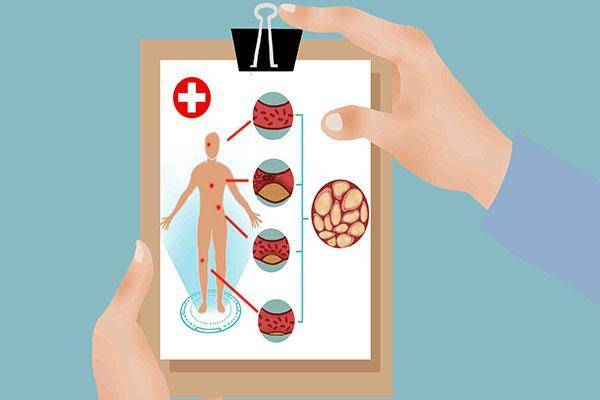The human body is covered with blood vessels, mainly to transport blood to various parts of the body. The body requires blood supply for operation, and blood can also carry oxygen and nutrients to help the body function better.
With blood vessels as the pathway, blood, oxygen, and nutrients can be promptly delivered to different parts of the body. If there are problems in the transportation pathway, it can lead to issues in the body.
Similar to water pipes, if not cleared for a long time, they can accumulate dirt, leading to blockage. Blood vessels are the same way; if waste deposits are not cleared in time, the vessels can get blocked, leading to problems wherever the blockage occurs.
Modern lifestyle errors, coupled with aging, can easily lead to vessel blockage, causing the formation of blood clots and related issues that may affect one’s lifespan.
What are the signs when blood clots form?
Despite having sufficient sleep, continuous yawning should raise concerns as it might indicate the presence of blood clots. Frequent yawning is often a sign of poor sleep, lack of adequate rest, resulting in fatigue and yawning. Timely adjustments can help alleviate this.
If yawning occurs frequently even when not tired and persists without relief, it might be a sign for early vascular examination to prevent blockages.
In a comfortable setting, if hands and feet remain cold despite adequate warmth, it could signal vessel blockage. After clot formation, blood circulation problems can arise, causing delayed supply to the extremities, leading to decreased hand and foot temperatures and coldness.
Occasional cold hands and feet might be due to exposure to cold air, but if it persists, it is advisable to promptly investigate the underlying causes to prevent further complications.
Frequent dizziness and headaches should not be ignored, as they can be symptoms of clot formation, leading to frequent dizziness and headaches. Especially in individuals with hypertension, experiencing these symptoms frequently after waking up or showering requires timely examination and early intervention.
When brain blood vessels are blocked, inadequate blood and oxygen supply could lead to ischemia and hypoxia in the brain, manifesting as dizziness and headaches.
Stay away from blood clots; the natural clot buster is right beside you. Regular consumption of herbs for vascular health
Regular consumption of dendrobium herb infused water can effectively inhibit clot formation, prevent hypertension and hyperlipidemia, yielding positive effects. Dendrobium herb is a traditional Chinese medicinal herb with wide historical applications, regarded as precious.
Capable of aiding thrombolysis, its polysaccharide components play a role in inhibiting clot formation, thereby reducing vessel blockages and maintaining vascular health.
Once formed, blood clots pose significant risks to the body. In daily life, it is essential to monitor bodily changes closely, practice self-care, correct unhealthy habits promptly, especially in older individuals who need to pay more attention to vascular health.
A balanced diet with reduced consumption of high sugar, high fat, and high cholesterol foods, less salt and oil, focusing on light meals, regular exercise, and hydration, can help maintain vascular health.


